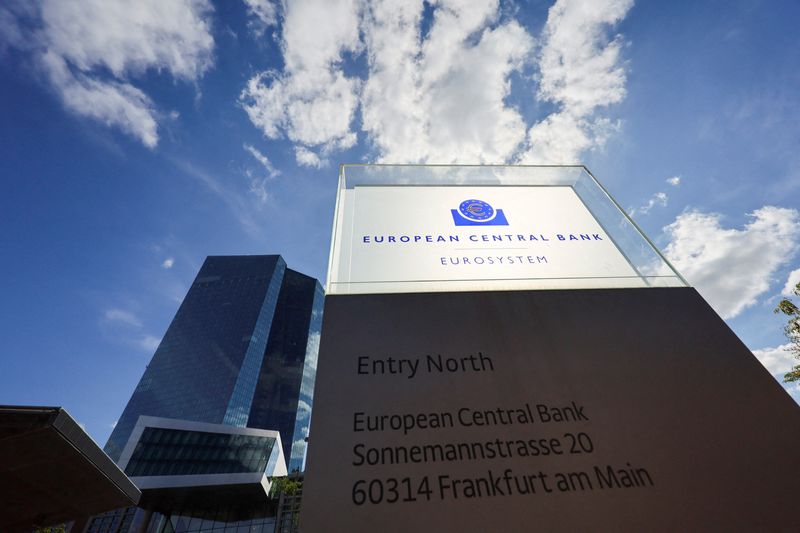By Balazs Koranyi
MARRAKECH (Reuters) -The European Central Bank has made significant progress in getting inflation back down to target, but new shocks could still require the bank to continue a now-paused tightening cycle, two influential policymakers said on Wednesday.
The ECB has raised interest rates at each of its past 10 meetings but has signalled a pause for October, with some policymakers arguing the bank has done enough while others are firmly keeping more rate hikes on the table.
"All in all, we made important progress on getting inflation back to target, but we still have a long and winding road ahead," Dutch central bank chief Klaas Knot told a conference in Marrakech, Morocco.
"I do believe that policy at this moment is in a good place ... (but) we will remain vigilant and we stand ready to adjust interest rates even more if the disinflation process were to stall."
Pablo Hernandez de Cos, the head of Spain's central bank, said that even underlying inflation, a key worry for some, has turned a corner - so rates staying on hold for some time now, before cuts, is a plausible scenario.
De Cos said that market pricing appeared to suggest investors understood the ECB's message and found its policy path credible.
"They are interpreting well that there might be a need for the current rate to remain in the current (setting) for sufficiently long, but ... they are also expecting that rates will decline, which for me is a kind of a confidence of the market that we will fulfil our mandate," de Cos told a separate event in Marrakech, where the World Bank and IMF annual meetings are taking place this week.
Markets see steady rates through mid-2024, before modest cuts in the second half of next year.
Still, de Cos added that new shocks could emerge, which would require different decisions given that uncertainty over economic prospects has been especially high.
Inflation is seen falling close to 3% by the end of this year, then stagnating for most of next year before declining again into 2025.
Knot argued that the euro zone economy was now facing a period of economic stagnation as manufacturing is in a recession now and the services sector has started to suffer too.

"The cooling of economy that we're currently undergoing is also desirable in a way," Knot said, arguing that weak growth helps reduce demand and fight inflation.
The near term outlook is so weak that the third quarter figure could be negative, de Cos added, but said that there is no drama and recovering real incomes will drive a recovery next year.